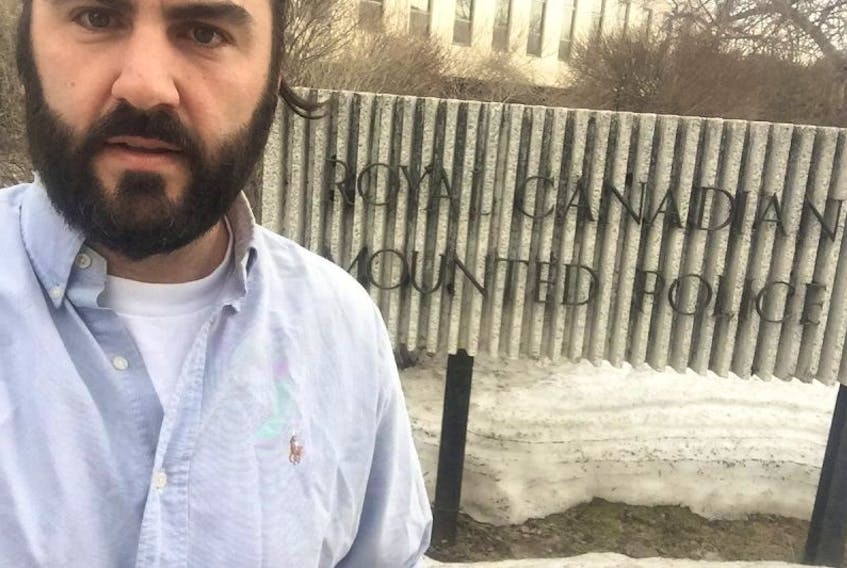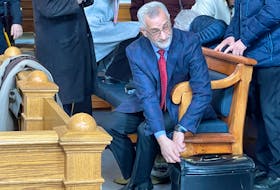
Karyn Pugliese, APTN director of news and current affairs, said there are national stakes involved with Brake’s case related to the Muskrat Falls protests last fall.
“Honestly, this has implications for journalists being able to cover these events. It creates a chill-factor to keep journalists away from covering these events,” Pugliese said.
“If this was applied to my journalists, I would have a lot of journalists going to jail.”
Brake followed indigenous activists, who call themselves “land protectors,” when they broke through the gate at the Muskrat Falls site and occupied one of the worksite accommodations buildings.
Work was shut down on the site for several days, as Premier Dwight Ball brokered a deal to address the concerns of the land protectors that flooding of the upstream reservoir would lead to methylmercury contamination, poisoning fish and game downstream.
During the crisis, Nalcor Energy went to court for an order to get the land protectors removed, and Brake was ultimately named in the order.
Related story
N.L. journalist charged with mischief back in court
Brake is now fighting in the Court of Appeal, saying his part of the order should be quashed.
“Right now all we’re doing is arguing that Nalcor had an obligation to inform the judge that I was a journalist,” Brake said. “You know, freedom of the press is right there in the constitution.”
In its application for intervener status, APTN said it intends to argue that the Muskrat Falls situation needed more careful consideration because of provisions respecting indigenous peoples contained in the Canadian Constitution Act and the Charter of Rights and Freedoms.
Pugliese said a big part of what APTN does involves embedding journalists with indigenous activists, and this case could cause real problems for that sort of coverage.
“APTN, since the beginning, has always embedded itself with protesters,” she said.
“It’s important for journalists to be eyewitnesses to what’s occurring so that Canadians can understand what’s going on. That’s our role, to be there in the public interest.”
Both Brake and Pugliese also referenced the calls to action from the residential schools Truth and Reconciliation Commission (TRC), which include specific recommendations for Canadian media to be more active playing a role in reconciliation.
“Yes, there are one or two calls to action in the TRC report that compel media to do a better job of reporting on indigenous issues and struggles,” Brake said.
“We’re getting ready in a few days to celebrate Canada’s 150th birthday, and in Newfoundland, of course, we just celebrated Discovery Day. … But indigenous people have lived here for thousands of years, and they still live here.”
There is no date set for hearing the APTN application for intervener status, and the actual arguments aren’t expected to happen until sometime in the fall.









